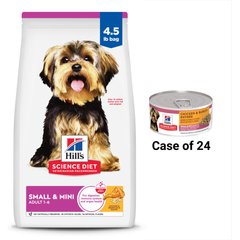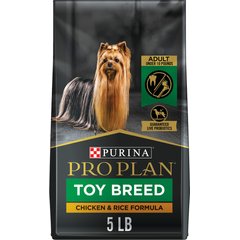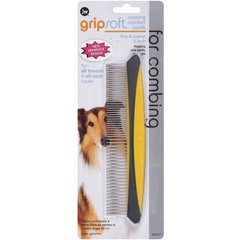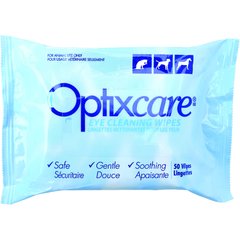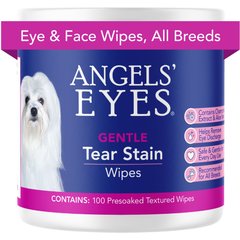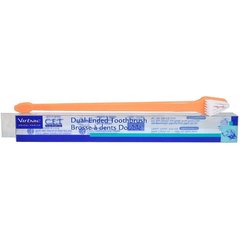Pomchi
Blake Snyder/iStock / Getty Images Plus via Getty Images
The Pomchi is a dog that packs a whole lot of spunk into a teeny, unassuming frame.
The offspring of Pomeranian and Chihuahua parents, Pomchi dogs are a relatively new mix and aren’t recognized by the American Kennel Club (AKC). However, the Pomchi’s parent breeds are well established—both have been AKC members for more than 100 years—and their breed standards provide a foundation for making predictions for how a Pomchi puppy will turn out.
The Pomeranian is the pint-size descendant of Arctic sled dogs. According to the breed standard, Poms are cocky and commanding—two amusingly unexpected descriptors for a dog that weighs between 3–7 pounds. Similar to their Nordic ancestors, Poms have dense double coats, a characteristically plumed tail, and an appetite for action.
The Chihuahua hails from decidedly warmer climes (what is now known as the Mexican state of Chihuahua) but is similar to the Pomeranian in size and spirit. Topping out at 6 pounds, spunky Chihuahuas seem to be unaware of their diminutive stature, although they won’t mind you carrying them around.
When these two breeds combine, you can expect a lively, petite Pomchi with a large capacity for affection and fun.
Caring for a Pomchi
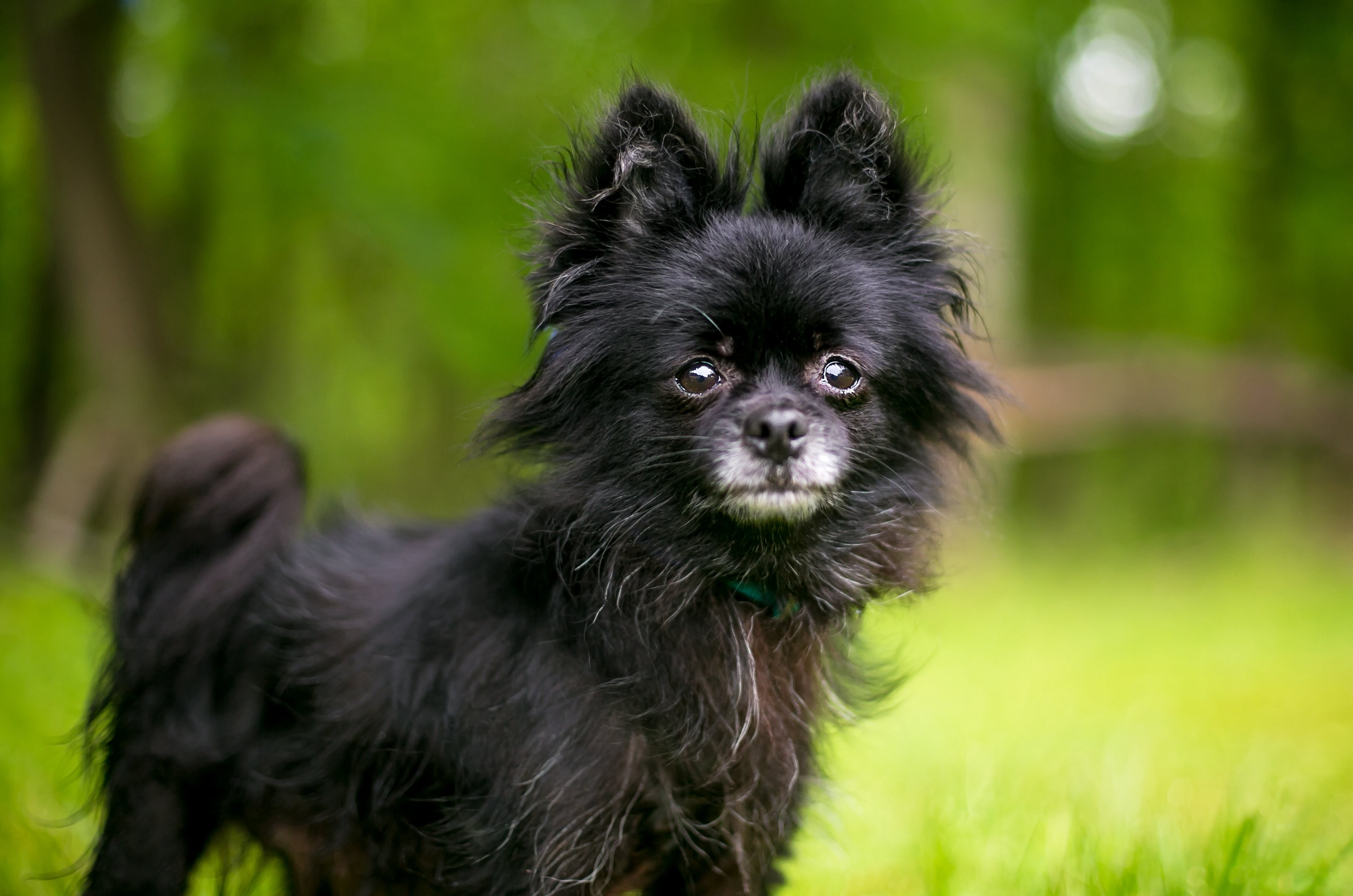
When it comes to toy breeds like the Pomchi, size matters. Because while their compact portions mean they can easily adapt to both town and country, they also come with inherent vulnerabilities that require careful consideration.
First, Pomchis can easily escape through the smallest of holes, so you’ll need to thoroughly inspect any area where your pup will be off-leash. Furthermore, because Pomchis can be mistaken for a bunny or rodent, you’ll need to be vigilant about protecting them from owls, hawks, and other predators when spending time outdoors.
Speaking of mistaken identity, very small children and larger pets can put this toy breed in danger by treating Pomchis like a toy. And finally, you’ll need to discourage your tiny Pomchi from leaping off furniture, as this can lead to joint injuries and even broken bones.
But that doesn’t mean your Pomchi can’t be active. In fact, they’ll need mental stimulation and physical exercise every day, which can be achieved through indoor games and training work, or short walks outside. Boredom can lead to excessive barking.
Your Pomchi’s grooming needs will depend on which parent they favor, but you can generally expect to have a brush in hand multiple times a week to avoid matting.
Pomchi Health Issues
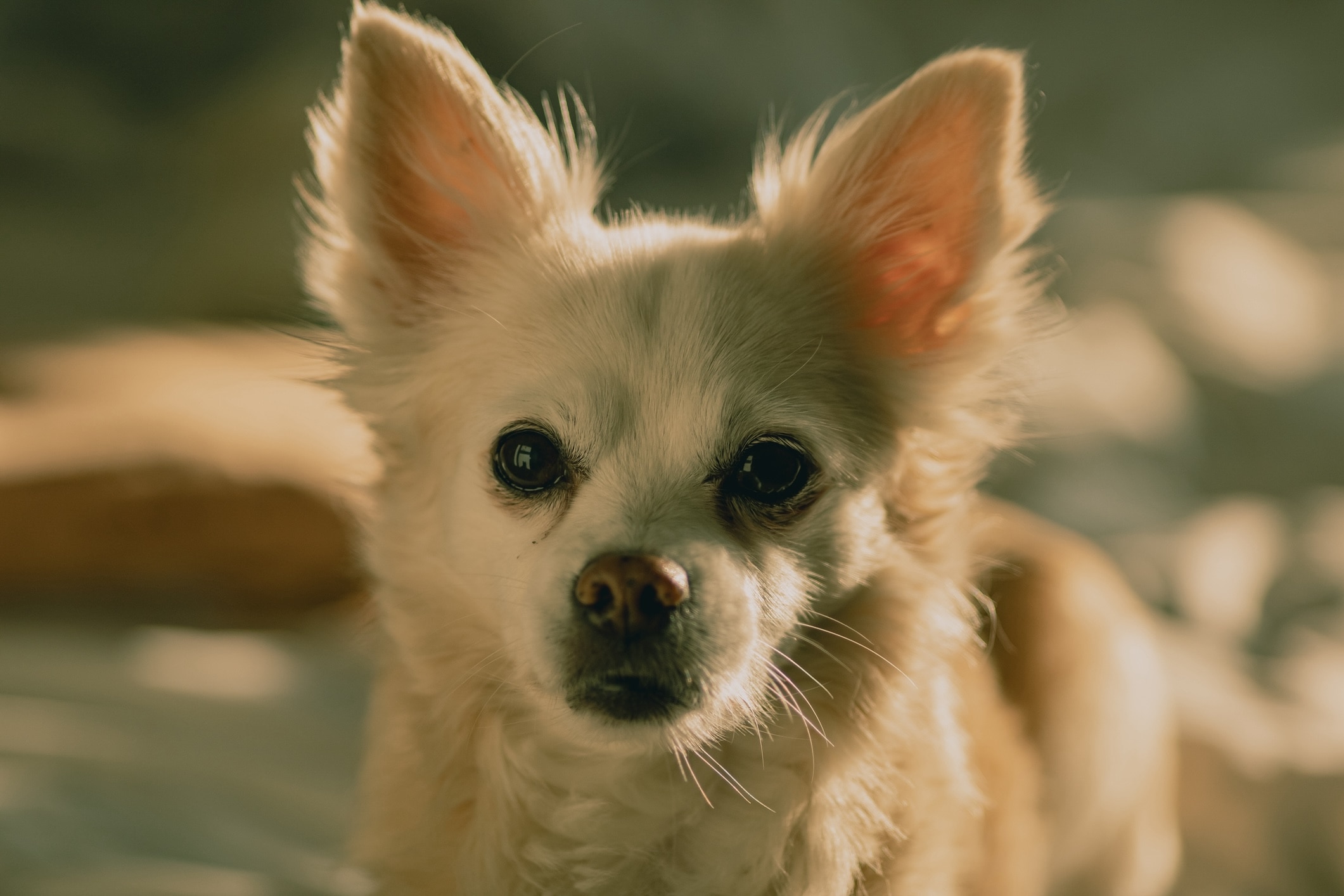
Both Pomeranians and Chihuahuas are healthy dog breeds with long life expectancies of 12–16 years and 14–15 years, respectively. You can expect the lifespan of a Pomchi to fall within these ranges.
Still, like all dogs, the two parent breeds are prone to various health conditions that can be passed to their Pomchi puppies.
Periodontal Disease
Periodontal disease, or gum disease, is a progressive condition in which bacteria accumulate in the mouth, causing damage to the dog’s gums, teeth, jaw bones, and other tissues. While the disease is common in all dogs, toy breeds like Pomeranians and Chihuahuas are especially prone to the problem.
Signs of periodontal disease include:
-
Discolored, loose, or missing teeth
-
Root exposure
Depending on how severe your dog’s case is, they will need a professional dental cleaning and/or tooth extractions. Frequently brushing your dog’s teeth at home is the best way to prevent periodontal disease.
Patellar Luxation
When the patella (kneecap) moves outside its normal groove in the femur (thigh bone), this is called patellar luxation. The condition is more common in smaller breeds like Poms and Chis.
Signs of patellar luxation include:
-
Limping
-
A bunny-hopping gait
-
A knee joint that seems to get stuck and then goes back to normal
-
A popping knee joint
Patellar luxation might not cause a problem in some dogs, but severe cases may require surgery.
Tracheal Collapse
Both of the Pomchi’s parent breeds carry an increased risk of developing tracheal collapse, a condition in which the cartilage rings of the trachea (windpipe) are weak or the membrane stretches out, leading to tracheal flattening.
Dogs with tracheal collapse often have a recurring, goose-honk cough. This cough tends to worsen with exercise, heat and humidity, excitement, stress, and eating and drinking.
Medication is typically enough to help most dogs, but surgery may be needed in some cases.
Patent Ductus Arteriosus
Patent ductus arteriosus (PDA) is one of the most common congenital heart defects in dogs, and both of the Pomchi’s parent breeds are at an increased risk.
The ductus arteriosus is a blood vessel that’s necessary during fetal development to divert blood from the fetus’s lungs.
This vessel naturally closes shortly after birth, allowing blood to flow through the lungs for oxygenation. But in Pomchi puppies with PDA, the ductus arteriosus stays open, resulting in a dangerous disruption of normal circulation. This can lead to heart failure.
Surgery is needed for treatment, ideally before the dog develops congestive heart failure (CHF).
What To Feed a Pomchi
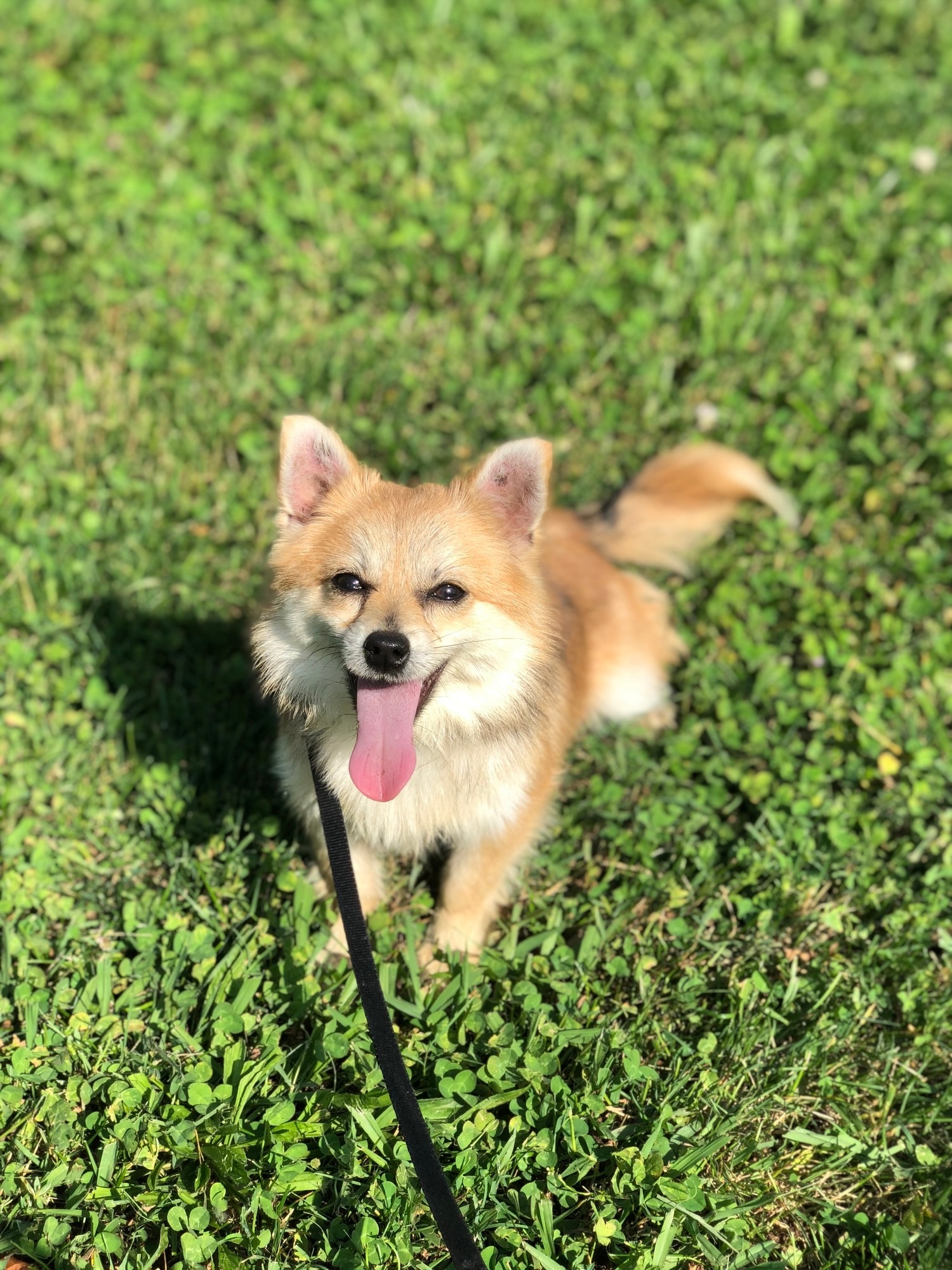
There’s no all-encompassing feeding plan that applies to every Pomchi dog. That’s why it’s important to work with your veterinarian to develop a feeding plan that’s nutritionally complete and balanced for your pup’s age, weight, health, and life stage (puppy, adult, or senior).
Because of the Pomchi’s small size, dog food made for tiny mouths is a good choice.
Recommended Products
How To Feed a Pomchi
Pomchi puppies need frequent meals (three or four a day) to avoid hypoglycemia (low blood sugar). Full-grown Pomchis can be fed less frequently: typically two or three times a day.
Your vet can help you determine a suitable schedule for your pet’s age.
How Much Should You Feed a Pomchi?
To know how much to feed your dog, do two things:
-
Look at the nutrition label on your dog’s food bag. This provides a general idea of portion sizes based on your Pomchi’s weight.
-
Work with your veterinarian. They can tailor a recommendation based on your individual pup’s weight, body condition score, lifestyle, and health needs.
Treats add up quickly in toy dogs, making Pomchis prone to obesity. Be sure treats don’t make up more than 10% of your dog’s daily diet.
Nutritional Tips for Pomchis
Pomchi dogs eating a dog food that meets the standards set by the Association of American Feed Control Officials (AAFCO) will receive all the nutrients they need.
However, your veterinarian may recommend nutritional dog supplements or even a prescription diet to treat or prevent various health issues. For example, a joint supplement may be recommended if your dog is diagnosed with a luxating patella.
Along with daily toothbrushing, your vet may recommend dental chews to help prevent dental disease.
Talk to your veterinary team before adding anything new to your dog’s diet.
Behavior and Training Tips for Pomchis
Pomchi Personality and Temperament
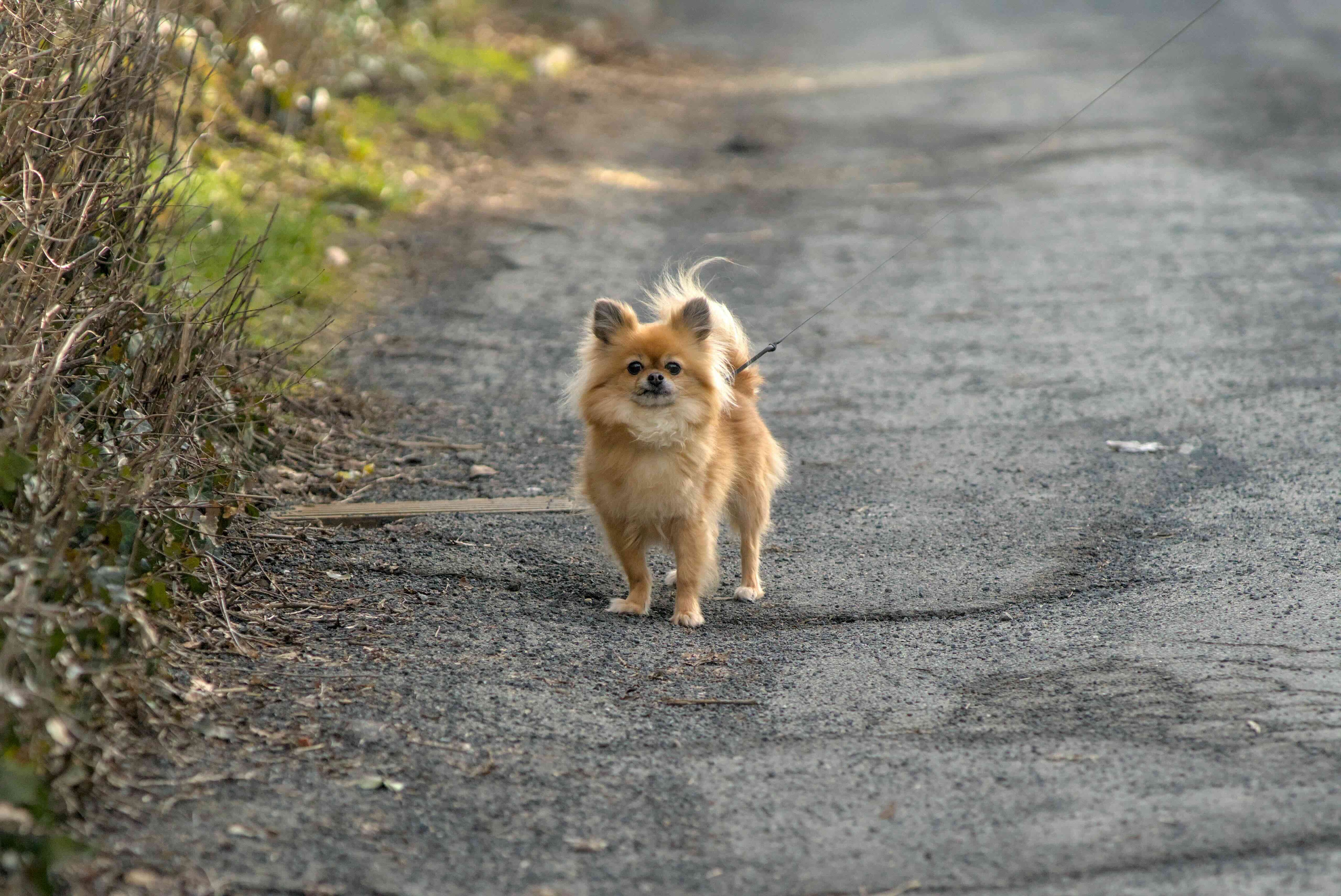
Sometimes the smallest dogs have the biggest personality—and this is true for the Pomchi.
Far from acting like they’re teeny enough to be toted around in a small handbag, Pomchi dogs are spirited companions that love their family. But they can be more reserved and wary around strangers, and a Pomchi may alert you to a new person with lots of barking.
With time, they can make friends with people and pets of all sizes—but extra caution is needed around larger animals and very young children who may treat a tiny, fragile Pomchi like a toy.
Pomchi Behavior
Pomchis need close companionship with their people to thrive, but also need proper socialization and training. Without it, they can develop separation anxiety and resort to excessive barking.
Though perfectly sized for laps, Pomchis are smart, high-energy dogs that need daily opportunities to exercise their brain and body. Once their energy has been burned up, however, they’ll be happy to cuddle and take up lap space.
Pomchi Training
It’s important to safely expose your Pomchi puppy to new animals, people, environments, activities, and objects during their first 16 weeks of life. This time is a crucial learning period, and socializing your puppy can help them feel comfortable not only as puppies, but also as full-grown Pomchis.
Like with every dog, a patient, positive, rewards-based training approach has the triple benefit of teaching your puppy necessary skills, building the human-animal bond, and providing mental stimulation and physical exercise.
Fun Activities for Pomchis
-
Short walks
-
Fetch
-
Skills training
Pomchi Grooming Guide
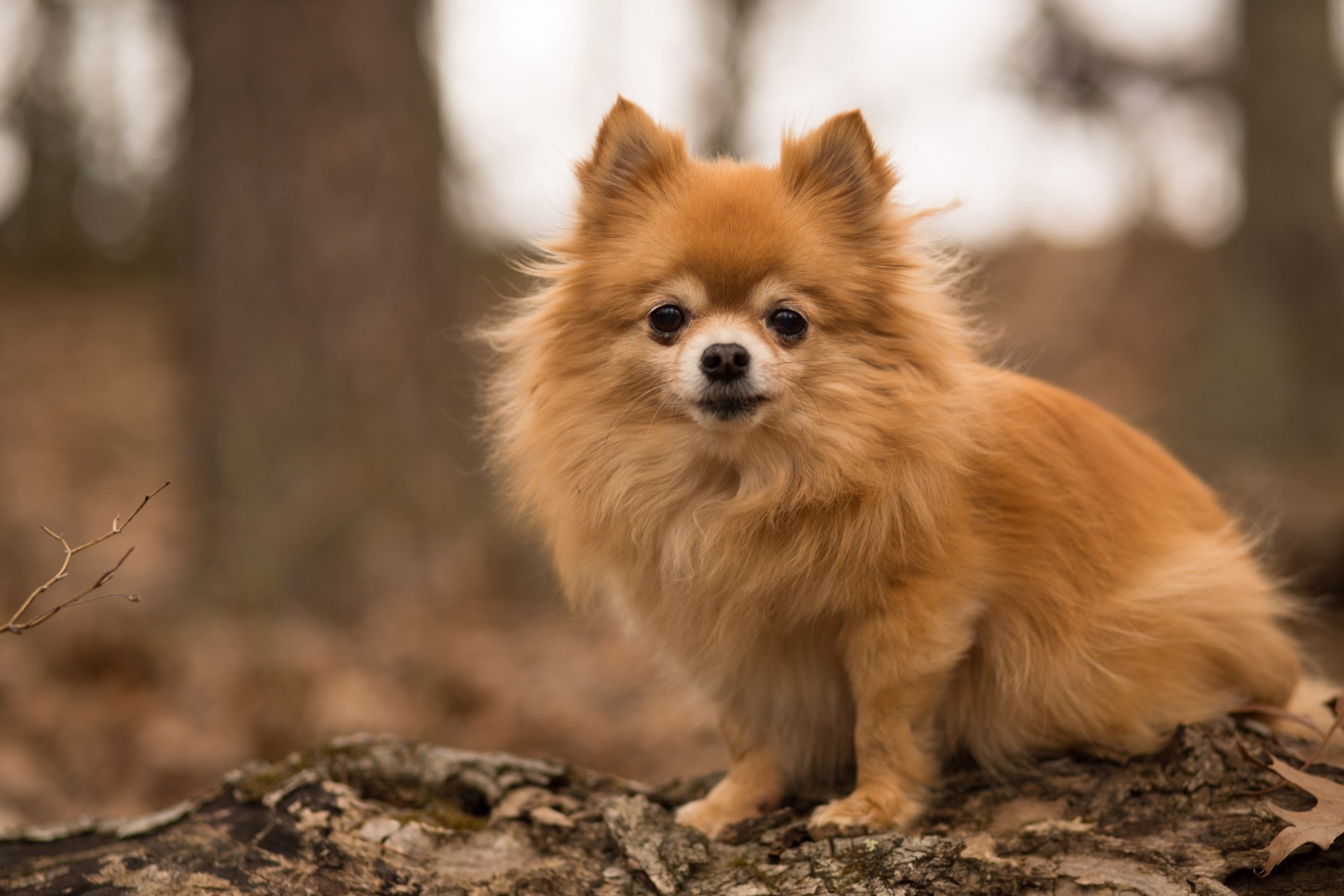
In general, Pomchis are a low-shedding breed, but how much grooming your dog needs will depend on which parent they favor. The Pomeranian’s dense fluff demands regular attention, but Chihuahua coats require less effort.
Skin Care
Keeping your dog’s coat healthy is key to keeping their skin healthy, as tangles and matting can keep moisture, debris, and other irritants next to your Pomchi’s skin.
Talk to your veterinarian about how often you should bathe your dog. Keep in mind that bathing your pup too often can strip their skin of healthy oils, causing dryness and itchiness.
Coat Care
Plan on brushing your Pomchi’s coat multiple times a week to prevent tangles and mats from forming. Regular trips to a professional groomer can help ensure your pup’s coat stays healthy and can simplify your weekly grooming duties.
Recommended Products
Eye Care
Both of the Pomchi’s parent breeds are prone to multiple eye issues. Schedule a vet appointment if you notice signs of disease, like bulging eyes, redness, or discharge.
Light-colored or white Pomchis often have issues with tear staining. Daily cleaning and drying the area around your dog’s eyes can help prevent staining. Have your dog checked out by a veterinarian if they have persistent tearing or redness.
Keep the hair around their eyes trimmed to help avoid eye irritation.
Recommended Products
Ear Care
Ask your veterinarian for tips on how to safely clean your dog’s ears. If you notice signs of an ear infection (discharge, redness, swelling, pain, or bad odor), it’s time to make a vet appointment. A vet will tell you how to treat the infection and recommend ear cleaning solutions.
Recommended Products
Dental Care
A Pomchi’s teeth require special attention, as these dogs are highly susceptible to dental disease. Pet parents should aim to brush their dog’s teeth every day with a dog-specific toothpaste and toothbrush.
Recommended Products
Considerations for Pet Parents
Here are some questions to consider before adding a Pomchi puppy to your family:
-
Can I provide a safe environment for a tiny dog?
-
Can I regularly brush a dog’s coat and/or take them to a groomer?
-
Can I brush a dog’s teeth every day?
-
Am I home enough to give a dog companionship?
-
Do I have time to provide a dog with mental and physical exercise every day?
-
Do I have the skills and patience to train a dog using positive reinforcement?
-
Am I financially prepared to provide veterinary care?
-
Can I provide a dog with a loving home for their lifetime, which could be 16 years or more?
If you can answer these questions with an enthusiastic “Yes!” you may be ready to parent a Pomchi.
Pomchi FAQs
Is a Pomchi a good dog?
Whether the smart, sassy, active Pomchi is a good dog for your family depends on several factors. Because of their tiny size, Pomchis can do well in homes or apartments, and in urban or rural settings, though it should be noted that they are wary of strangers and prone to barking.
Their tiny size also makes them vulnerable to being injured by very young children, larger pets, and outdoor predators. The ideal home would be able to provide a safe, loving environment; patient, positive socialization and training; and daily companionship and play.
How much does a Pomchi cost?
A Pomchi’s price will vary by breeder and can range from hundreds to thousands of dollars. You may also be able to find a Pomchi through a shelter or rescue organization.
How big does a Pomchi get?
The simple answer: not very big at all. Full-grown Pomchis are no more than 7 pounds in weight and 8 inches in height.
Are Pomchi dogs hypoallergenic?
No dog is truly hypoallergenic. However, Pomchis don’t shed much and could be a good choice for people with allergies, though they aren’t commonly thought to be hypoallergenic.
Should I buy a teacup Pomchi?
No. Teacup dogs and puppies are often bred to produce the smallest dog possible, often at the expense of health. Be wary of working with Pomchi breeders who sell teacup Pomchis.

